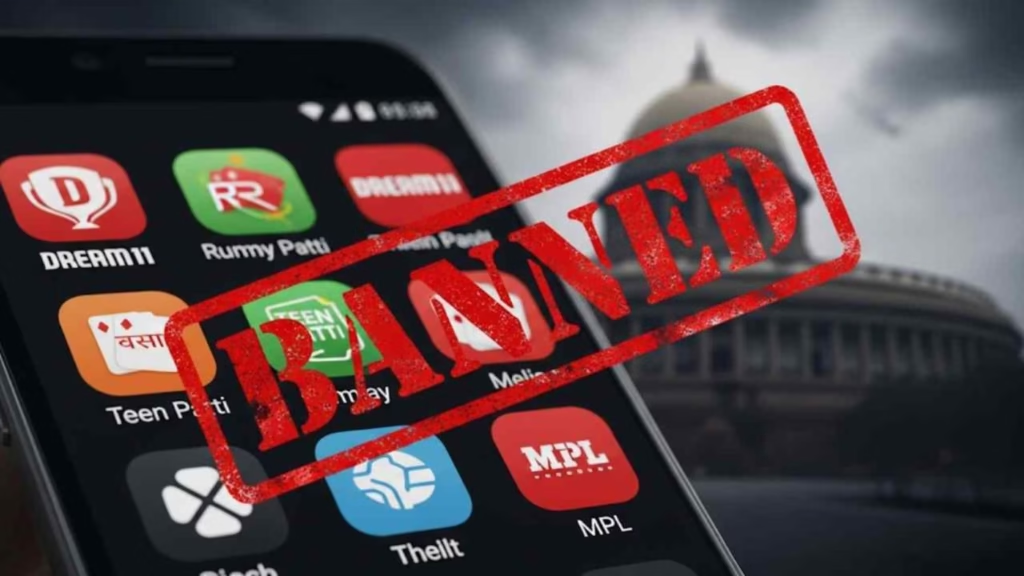On August 22, 2025, parliament passed a sudden ban on real-money games, sending shockwaves through India’s mobile gaming sector. This is the same industry that was once expected to grow into a $3.6 billion market by 2029.
Why the Ban Matters
Until now, the government had leaned on self-regulation attempts to keep the sector in check. But with this new move, it has gone for a complete prohibition. The ban doesn’t just stop online real-money games; it also blocks related ads and payment services, cutting off the ecosystem entirely.
Officials defended the decision by pointing out the risk of financial harm to players and the possibility of psychological damage, calling such games “harmful.”
Big Names Hit Hard
The announcement quickly rippled across the industry. Major platforms like Dream11, PokerBaazi, and Mobile Premier League were among the first to pause their real-money offerings.
The fallout reached the stock market too. Nazara Tech, which holds a 46.07% stake in PokerBaazi operator Moonshine Technologies, saw its shares tumble nearly 17% in just three sessions after Moonshine shut down its money-based games.
What the Industry Is Saying
Inside the gaming world, reactions are mixed. Real money games firms are quietly reviewing the new rules, but many are also weighing legal options.
According to Reuters, citing gaming industry sources, several companies are already speaking with lawyers about approaching the Supreme Court. Their argument is simple: the ban came without consultation, threatens a high-growth sector, and unfairly lumps skill-based games like poker with chance-based gambling.
Interestingly, traditional video game firms have largely welcomed the move, saying it draws a much-needed line between games for fun and games for money.
The Road Ahead
For now, the industry faces a tough road. The sudden real money gaming ban has left investors nervous, companies scrambling, and users unsure about the future of their favorite platforms. Whether the Supreme Court steps in or the government revisits its decision will decide the fate of this once-booming sector.








